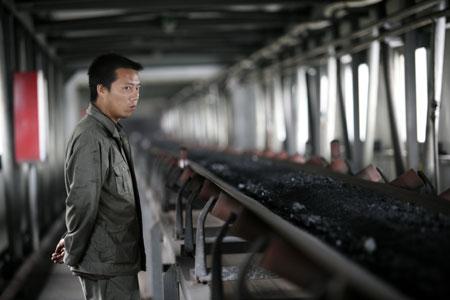
A man works in a coal washing facility in Linshi, Shanxi province. The consolidation of the province's mining industry has badly affected the fortunes of many private investors. [Natalie Behring / Bloomberg]
Entrepreneurs in Wenzhou may have been left high and dry by the bleak outlook in the property market and the consolidation wave in Shanxi coal mines, but a new document about encouraging individual investors to enter traditionally State-owned sectors offers them new hope.The document published last week by the State Council aims to encourage and guide private investment and expand the investment scope and coverage of the private capital.
During the 2010 China Private Capital Summit (Wenzhou) held on Sunday, the investment possibilities brought about by the document became the hottest topic among the 50 economists as well as more than 1,000 participants.
Currently, a total of more than 12 trillion yuan ($1.76 trillion) of private capital exist across the nation, among which more than 600 billion yuan comes from Wenzhou, a city with a total population of 8 million.
As the nation's largest habitat of private capital, Wenzhou is renowned for its investment-sensitive entrepreneurs and their nationwide investment, some of which even goes overseas.
In recent years Wenzhou's investors have focused their efforts on property and mining investments.
The recent tightening of the property market leaves few opportunities for speculation in the next couple of years, while the consolidation of mines in Shanxi province has also taken its toll on private investors.
"The two areas that contribute most to Wenzhou entrepreneurs' swollen bank accounts have started to lose their sheen. There are too many uncertainties in the two areas, and I think venture capital and private equity could be alternatives to property and mining investment," said Zhang Yumin, a senior property investor.
Ni Bayi, chairman of a footwear materials manufacturer, said that rising costs have affected the competitiveness of his company.
"Wenzhou is China's shoe making capital, but rising costs have sounded the alarm that it's time to shift from traditional labor-intensive industry into other capital-sensitive industries," he said.
Ni established an investment management company at the end of last year, but he complained that investment outlets for private capital were too limited. "The new document will reinvigorate private capital," Ni added.
Statistics from Wenzhou government shows that as much as 20 billion yuan is invested in financial and related areas at the moment.





